AN OPEN LETTER TO THE U.S. FISH AND WILDLIFE SERVICE FROM ROBIN HURT.
Ref . The US Fish and Wildlife Service suspension ( ban ) on importation of elephant trophies hunted in 2014 by sport hunters in Tanzania and Zimbabwe into the USA.
Yes , Africa has a serious poaching problem , fuelled by recent unprecedented demand .
Your suspension is in fact causing a ' ban ' on American citizens hunting Elephant in Tanzania and Zimbabwe . Even though Governments of both countries see the need to allow continued licensed hunting . No hunter will go all the way to Africa on an expensive safari , if they can't take their trophy home . Safari hunters unlike poachers , are selective - they are not killers bent on a quick financial return - on the contrary , they are prepared to pay large sums of money for the privilege of legally hunting and keeping the trophy of a selected animal .
Bans don't work . Bans are not a solution . Rather encourage better management and anti poaching . More importantly find a solution to dealing with the end users , who are the cause of the poaching problem in the first place .
I have witnessed first hand the negative results of 3 African Hunting Bans . Having been first licensed in Tanzania as a Professional Hunter in 1963 , I have been a full time professional hunter ever since , no only in Tanzania , but at one time or another in most African countries that allowed hunting . I state this in the interests of sharing the changes I have seen caused by hunting bans .
Briefly . Safari Hunting is an important wildlife management tool in Africa . It produces important revenue from legitimate licensed hunting take off of surplus game animals to Governments and Safari operators . It hugely contributes to the financial well being , and food supply , to people who live on a day to day basis with wild animals , in an around wild life areas . It helps fund and pay for anti poaching efforts by both safari companies and Governments . It mostly utilises old animals , often beyond breeding age . American Safari hunting clients contribute about 60% of the revenue earned through sport hunting in Tanzania and Zimbabwe . Your suspension will seriously erode revenue that is so badly needed in Zimbabwe and Tanzania to help fund anti poaching . The cancellations following will cause financial loss to conservancies where the local people will not understand your reasoning for the suspension - some will simply just turn to poaching to compensate their losses .
You know all this, but, what you may or may not know, is the negative results of prior hunting bans .
Namely :-
TANZANIA IN 1973 - at that time there were an estimated 380,000- elephant , and 18,000- black rhino . By the time the Government reopened hunting in 1983 , the elephant population had declined to about 80,000- and rhino to less than 100 animals . The Tanzanian Government realised that the ban was a mistake , leaving the wilderness wide open to commercial poaching , and reopened safari hunting in 1983 . The elephant population immediately started to recover , increasing up to an estimated 130,000- animals in 2009 , prior to the current poaching . No doubt this number has dropped , but your suspension will only serve to exacerbate the problem .
KENYA IN 1977 - at that time there were an estimated 176,000- elephant , and over 8000- black rhino . Today there are various estimates , but probably an accurate one would be somewhere in the region of 20,000 + - elephant , and about 500 + - rhino . Kenya remains closed to Safari Hunting , and has the embarrassment of loosing over 150,000- elephant and 7,500- black rhino ! All in a period of no legal hunting . Poaching is , and continues to be , rife .
DEMOCRATIC REPUBLIC OF CONGO - ( FORMALLY ZAIRE ) - formally the largest strong hold of the forest elephant , Safari Hunting was banned in 1984 . It remains closed to this day . Since that closure the northern white rhino has completely disappeared , and is probably extinct . Forest elephant are now a rarity in that country . Again all in a period of NO legal hunting .
There is a message here . Taking legal hunters who are legitimate managers of wildlife out of the bush creates a vacuum of empty wilderness , that is soon filled by illegal thieves of wildlife -poachers .
Yes there is a huge poaching problem in Africa today , wherever there are elephant and rhino . Not only Tanzania and Zimbabwe . But , I can assure you that if you remove the legal presence of Safari Hunters from the bush , which is what will happen as a side effect of your suspension, poaching will increase at an alarming rate. That could threaten the very existence of elephant in Tanzania and Zimbabwe .
All of us have the common interest of the well-being of all wildlife , not just elephant . A professional hunter is most motivated to look after and steward his or hers wildlife . Their very livelihood and way of life depends on this .
A remedy to counteract poaching ? The following may be worth considering :-
Instead of an outright punitive suspension, encourage proper management practices . Liaise with African Governments , work with them and assist them , rather than antagonise them with importation bans . Part of the problem is that often legal hunting and wildlife theft through poaching are lumped together under one ' umbrella ' , because of misinformation . Legal licensed hunting is conservation , poaching is simply stealing .
Target and punish the end users and dealers who after all are the villains and cause of this poaching scourge . It often seems to be the legal hunters who are targeted , yet the real criminals seem to get away scot free - this needs to change !
Help fund anti poaching . Tanzania and Zimbabwe have limited resources . Anti poaching is hugely expensive . The US can make a huge difference by helping to fund anti poaching programs in the field .
Educate and involve local human communities in the value of conserving wildlife , whether through wise sustainable use ,or photographic safaris . Both are equally important in giving wild animals real long term value .
Lastly , if the US importation suspension on sport hunted elephant is not lifted , then an undoubted increase of poaching will be the result in both Zimbabwe and Tanzania . Who will then accept the responsibility for that ? The US Fish and Wildlife Service ?
Yours Sincerely ,
Robin Hurt .
The results of the USF&Wildlife Suspension of sport hunted trophies from Tanzania . I am not in favour of any type of ban Per Se , but rather for more effective management and anti poaching in Tanzania .
In more recent times I preferred to only hunt elephant in Botswana and Namibia , because I felt there was a better chance to get a bull of 60 lb + aside tusks than anywhere else , and on top of that , very healthy populations in both those countries .But , as you are probably aware , I was never keen on selling elephant hunting for our company in Tanzania . This was a simple management decision . The result was that we only hunted 3 or 4 bulls since 1984 , and none in recent years . Big ivory has a link to an elephant bulls age - the older the bull , the bigger the ivory . My idea was was to build up big bull numbers in our areas , and to let them live longer not just for breeding ( what a lot of people don't know is that the big bulls are the prime preferred breeders by the cows ) but also to grow larger and heavier tusks . We were most successful in doing this , and in a couple of our blocks 5 or 6 years ago I personally saw one bull that was probably 100 lbs + aside , and several others in the 80 / 90 lb region . But all our good work was undone when the poaching started up seriously 5 years ago , and all the big bulls we had cared for soon disappeared through poaching and our efforts were in vain. We never had the chance to reap the rewards that should have come our way . It was very discouraging .But .......It's all about management isn't it !? - Banning or closing something hardly ever works .What I am in favour of is sustainable management . Which is what Safari Hunting should be all about . We all know there is a huge elephant and rhino poaching problem - something needs to be done about that - it is not sustainable . This is an Africa wide problem . The only solution is to somehow kill the market at the end user - but I can't see that happening at the moment . So , what is the solution - I really don't know . Perhaps in the case of White Rhino some sort of legal horn harvesting ( it grows back in 4/5 years ) could be considered ? Worth thinking
about . That type of harvesting can't be done with elephant .Somehow we need to manage our elephant and rhino resources in a better way - that means getting on top of the poaching menace . CITIES is an effective manager of legal hunting , but has not had much effect at all in recent times on the illegal trade . Why ? Monitoring legal operators is easier and less expensive - whereas illegal activity ' underground ' is difficult not only to monitor , but to stop , because of it's very ' underground ' nature .In closing some thoughts and statistics for you :In 1973 when Tanzania closed hunting there were an estimated 380,000 elephant and 18,000 Black Rhino .In 1983 when safari hunting reopened there were 80,000 elephant left and less than 100 rhino . In other words , the ten year ban saw huge destruction of elephant and rhino through illegal poaching , which is why Tanzania reopened Safari Hunting - just in time I might add .Similarly , Kenya closed all hunting in 1977 - at that time Kenya had an estimated population of 176,000 elephant , and 8000 Black Rhino . Today there are probably only 20,000 + - elephant and 500 +- rhino ( both black and white - the White having been introduced from S Africa ) .So banning clearly doesn't work .Over a similar period Botswana 's elephant population went from about 30,000 in the early 1970 's to about 180,000 today . Why , because there was no poaching ; a result of and the positive side effect Safari Hunting had discouraging poaching . I understand that since the ban introduced at the end of last year , the poaching in Botswana is already out of hand . Let's see how this pans out in a few years time .I hope this clears up how I personally feel about the current poaching situation we face Africa wide - not just Tanzania .Regards ,RobinROBIN HURT
HUNTER AND CONSERVATIONIST
BACKGROUND - The eldest son of the late Lt. Col. Roger Hurt D.S.O. , Kenya Game Warden, Robin was born in London in 1945. His first footsteps were in Somalia, at the age of 18 months, where his father was the Military Administrator of the country. He grew up on the Hurt Family ranch on the shores of Lake Naivasha in Kenya’s Great Rift Valley. By the age of 9 Robin was already learning about the African bush and hunting with his father’s game scouts.
Robin was educated at Kenya’s premier school, The Duke of York, before serving his apprenticeship with Ker and Downey Safaris. At the age of 18 Robin was a fully licensed Professional Hunter. He hunted with Tanganyika Wildlife Corporation in 1963 and with Uganda Wildlife Corporation in 1964 and 1965. On returning to Kenya, Robin was a full time Professional Hunter with Ker and Downey up to 1973 when Robin Hurt Safaris was set up in Kenya and the Sudan.
In 1984 Robin started Robin Hurt Safaris (Tanzania) Ltd. More recently Robin Hurt Safari Company Pty. Ltd. was formed in Namibia. In Great Britain Robin Hurt Ltd. specializes in driven bird shooting. The Safari World of Robin Hurt Ltd. is responsible for coordinating bookings for these companies.
Robin has been licensed a licensed Professional Hunter in Kenya, Uganda, Tanzania, Sudan, Central African Republic, Zaire, Botswana, Zambia and Namibia. His clients from these safaris have hunted many record world class Big Game trophies. He has suffered three different hunting bans in his career - Tanzania 1973, (sensibly re-opened in 1983); Kenya, 1977; Zaire, 1984. All of these were a negative impact, but this did not stop him from continuing hunting in other countries, where allowed.
PRESENT DAY - Robin and his wife Pauline now live at the foothills of Gamsberg Mountain in Namibia. Here Robin continues to pursue his passion for hunting kudu, desert leopard and other game with old and new clientele. He is an avid wildlife art collector and keen photographer. Robin has 5 children, Derek, Tania, Sasha, Hilary and Roger. Derek and Roger have followed their father’s footsteps and are licensed PHs in Tanzania, under the Robin Hurt banner. Robin has two step-children Dan and Jessica Mousley. Dan is a licensed PH in Namibia. Robin has eight grandchildren. He is the head of the Hurt family of Derbyshire, England. (Ref: The Hurts of Derbyshire, by Derek Wain, published by Landmark Publishing Ltd).
CONSERVATION - In 1990 Robin, together with Mr. Joseph F. Cullman 3rd, set up The Cullman and Hurt Community Wildlife Project in Tanzania, to promote wildlife and habitat conservation through sustainable use of a renewable wildlife resource. This project which has turned poachers into anti-poachers, has international recognition and is considered to be one of Tanzania’s greatest conservation successes. Three successful Art Auctions, have been held in New York City, to benefit the project. This project is now known as The Robin Hurt Wildlife Foundation.
BOOKS AND ARTICLES - Hunting the Big Five - Robin Hurt, Published by Safari Press, California, USA. Wildlife Conservation by Sustainable Use – Section on Safari Hunting by Robin Hurt and Pauline Ravn, Kluwer Academic Publishers, 2000, Edited by Herbert T. Prins and Others.
Contributions and mentions in the following publications – White Hunters by Brian Herne, Uganda Safaris by Brian Herne, Wisdom of the Woods by Robert Gruszecki, At the Hand of Man by Raymond Bonner, Safari, A Chronicle of Adventure by Bartle Bull, The East African Professional Hunters Association by Tony Dyer, Hunting in the Sudan by Tony Sanchez-Arino, Hunting in Kenya by Tony Sanchez-Arino, Songs of the Summits by Jesus Yuren, The Hurts of Derbyshire by Derek Wain. African Hunter II, for which Robin wrote the foreword and two chapters. Kudu - The Top African Antelope - the chapter on East African Kudu. Various articles in the following magazines - The Field, Time Magazine, Newsweek Magazine, Outdoor Life, Safari Club Magazine, Dallas Safari Club Magazine and Man Magnum magazine published in South Africa.
FILMS - In the Blood, by George Butler. The Gardeners of Eden by BBC (Scorer Associates). BBC production, Vanishing Breed.
ASSOCIATIONS AND CLUBS - Founding Member of the African Professional Hunters Association (APHA). Member of the Tanzania Professional Hunters Association and Namibian Professional Hunters Association. International Professional Hunters Association, Safari Club International and Dallas Safari Club. Shikar Club (UK), British Deer Society, Countryside Alliance, Explorers Club (New York), , Muthaiga Country Club, Kenya. Member of the now defunct East African Professional Hunters Association.
TROPHIES AND AWARDS - East African Professional Hunters Association - Trophy Measurements Scheme, won in 1975, 2nd in 1974 and 1976. Shaw and Hunter Trophy in 1973 for a 54” buffalo hunted in Lolgorien, Kenya. Ian MacDonald Trophy in 1973, 1975 and 1976 for the best buffalo hunted in Kenya in each of these years. Zambia Professional Hunters Association - Hunter of the Year award, 1981, for a black maned lion. A.P.H.A. Big Six Award, A.P.H.A. John Sharp award for Dangerous Game, A.P.H.A. Conservation Award.
PHILOSOPHY – That for wildlife to survive in a changing Africa, it must be a competitive form of land use benefiting human communities.



 Enquire
Enquire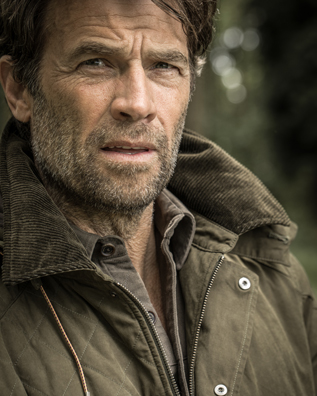
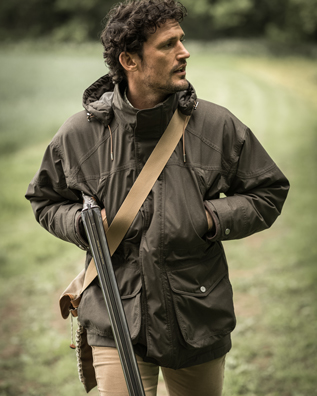
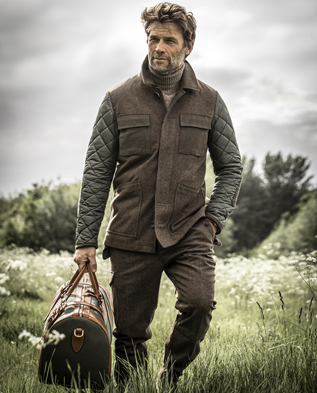
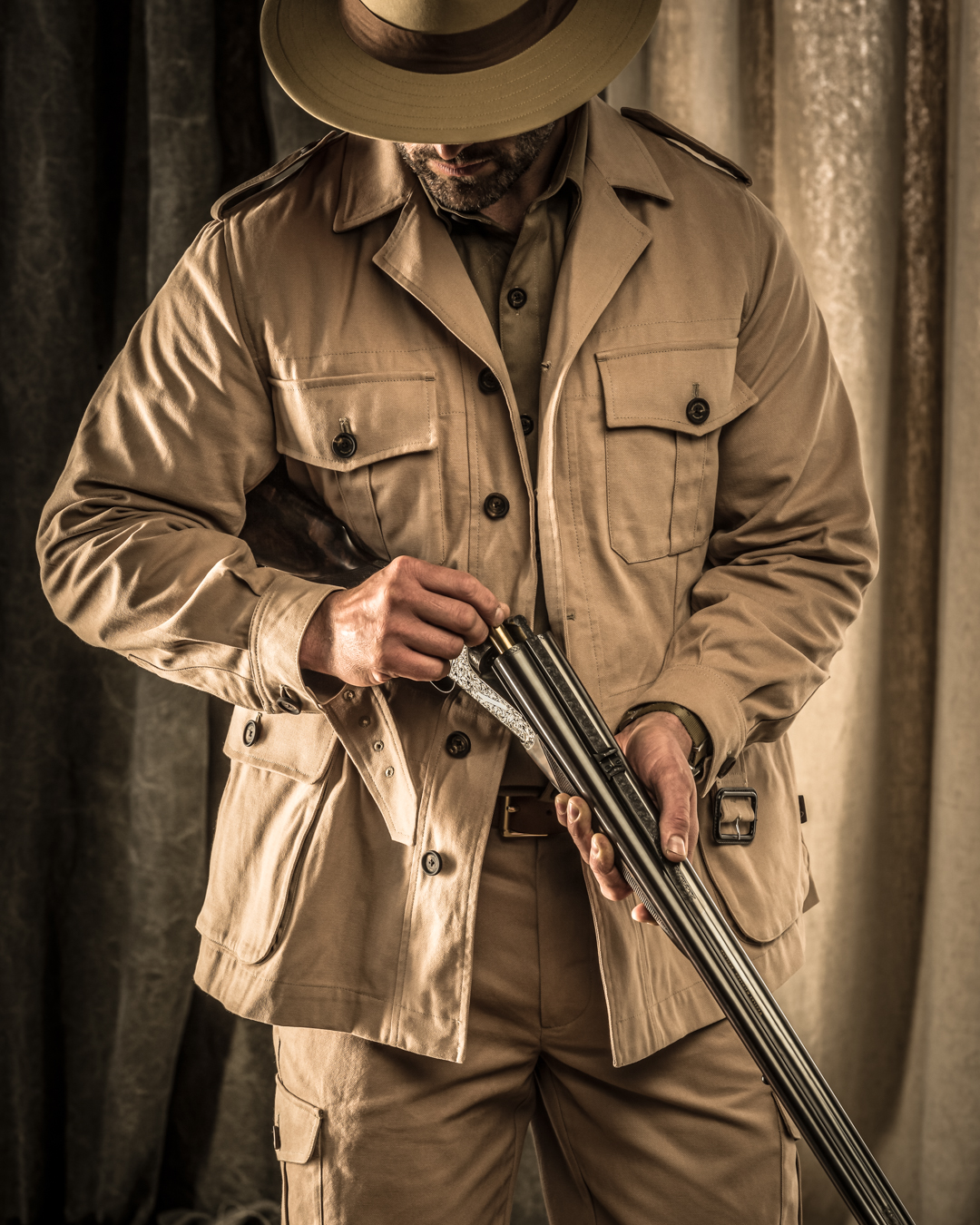
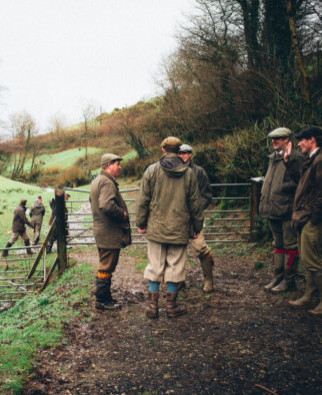
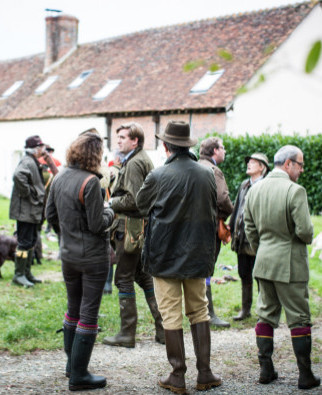
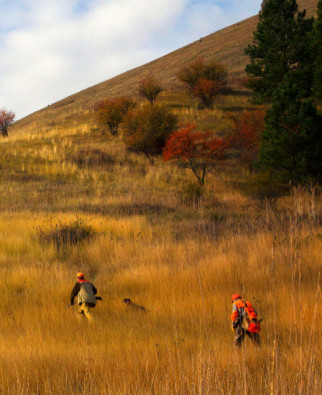
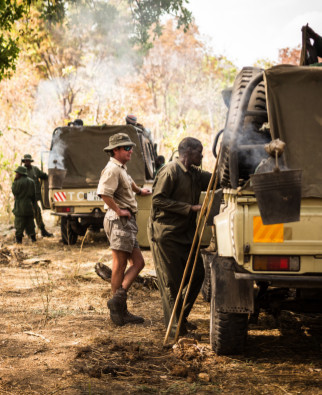
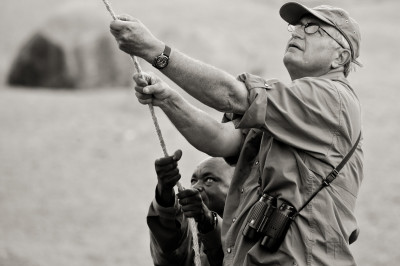
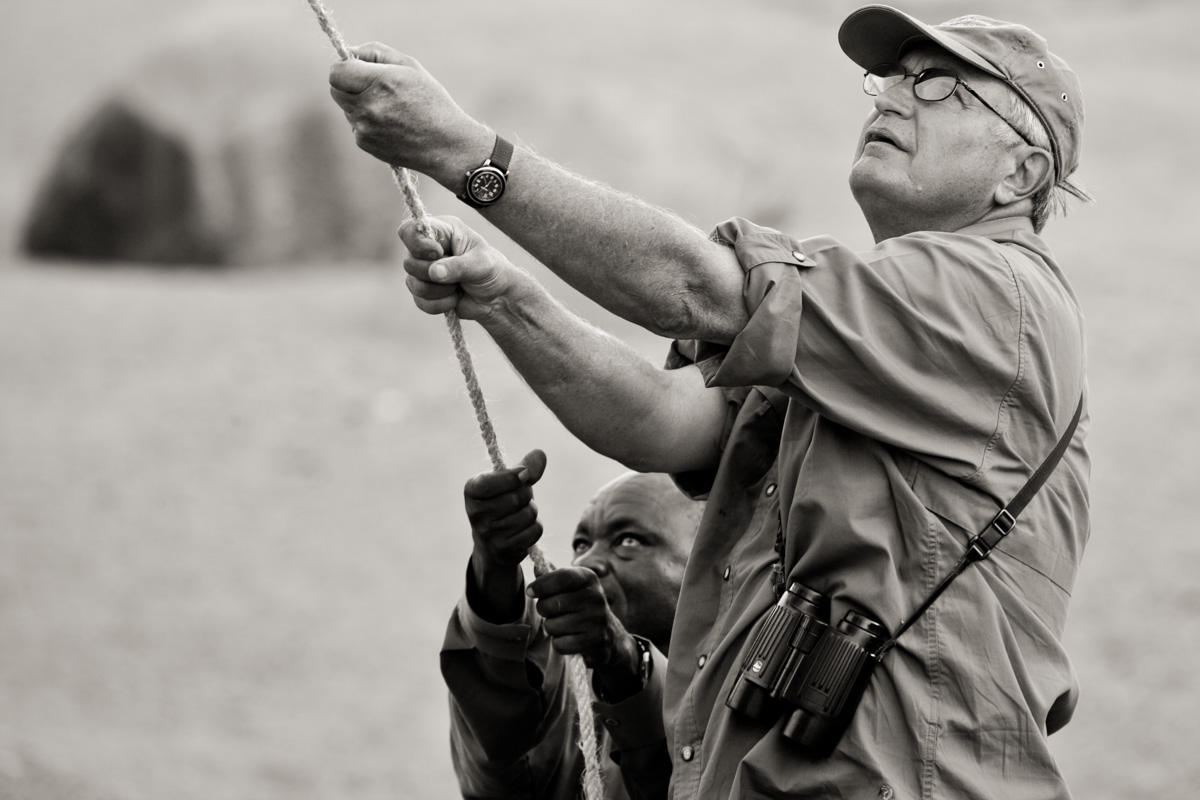

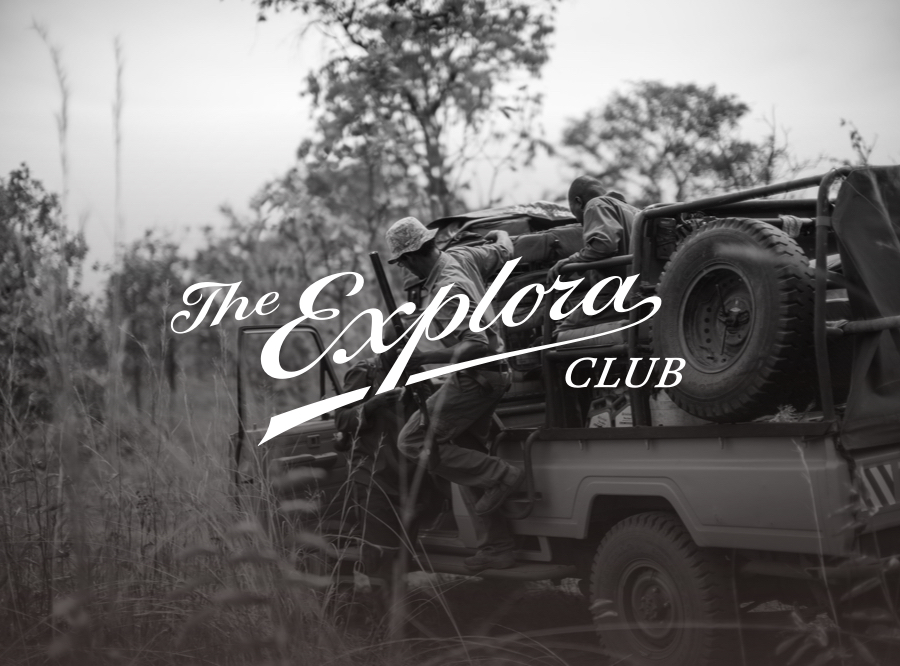
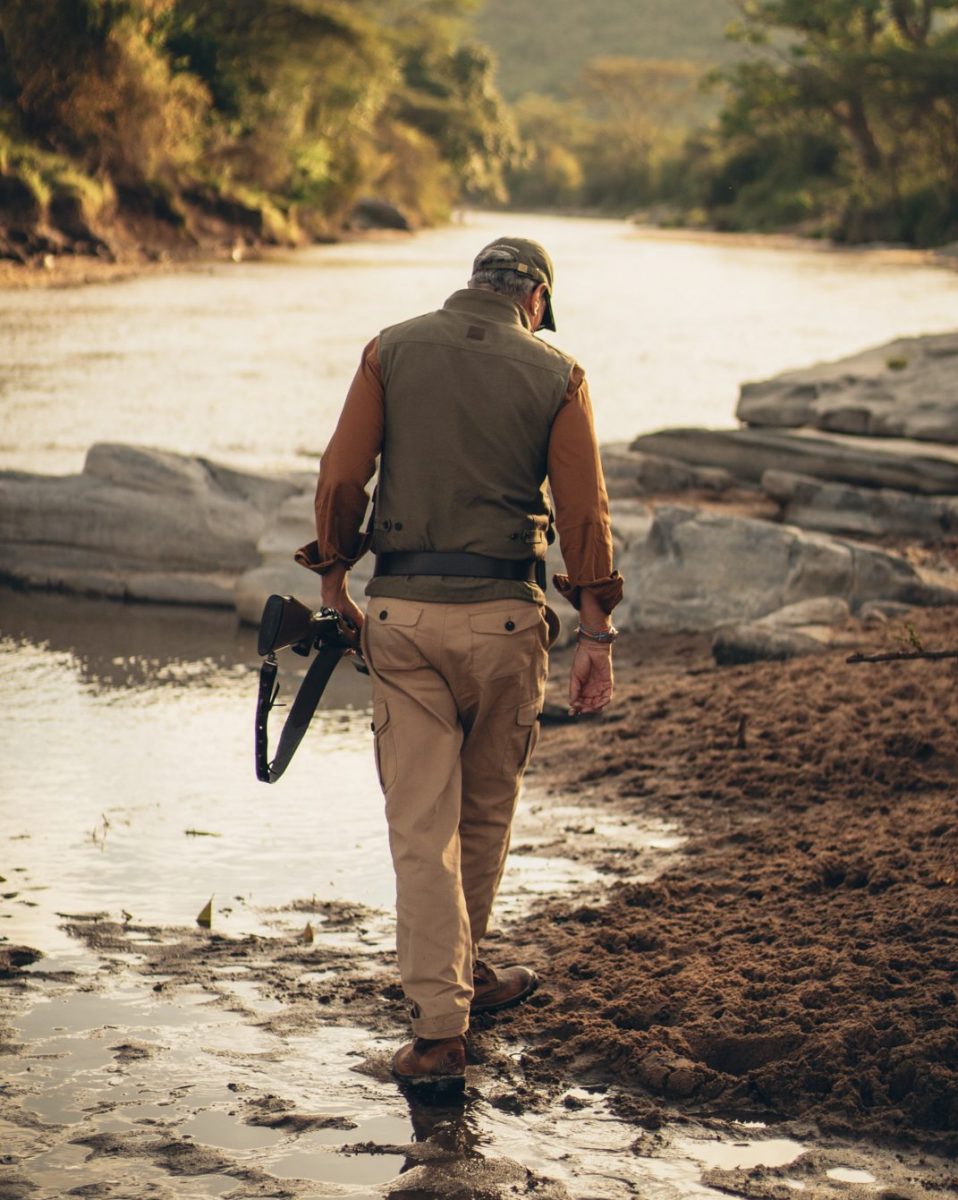
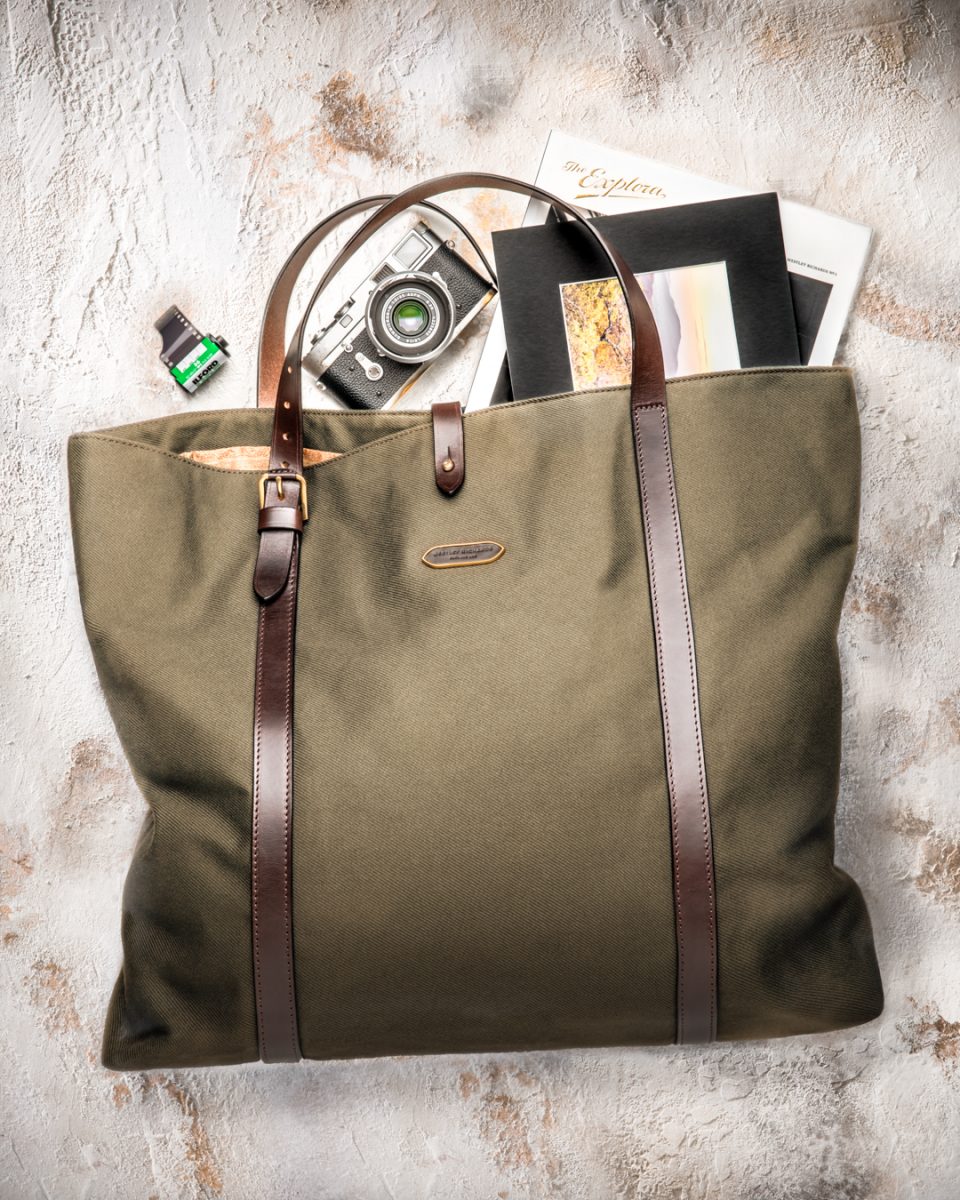



john morris on May 18, 2014 at 4:57 am
Let's hope the USFWS takes heed of Robin's letter along with other first hand accounts from those on the ground in these two countries.
Carl Eriksson on June 4, 2014 at 10:59 am
I have lived in Lagos, Nigeria for the past three years where there is practically a total ban on firearms ownership and hunting.
The local markets offer various types of "bush meat " for sale such as small antelope and crocs but also commonly available are all sorts of snake and, very commonly, Pangolin (which are on the endangered list). All these are killed by local hunters for profit.
At the craft market numerous stalls sell Ivory products--usually to the Chinese community-- and last week I witnessed a sack of raw Ivory tusks being delivered to a stall holder at Lekki Market.
Being alone amongst hundreds of stall holders and purchasers meant that to take the man delivering the tusks to task would be foolhardy and dangerous.
There are practically no elephants left in Nigeria so I guess this shipment came from Cameroon or Burkino Faso but, as Robin Hurt stated in his letter, the only way to stop illegal hunting is to stop the sale of Unauthorised Ivory and reintroduce Legal Hunting which gives the local inhabitants a reason to conserve the animals due to the higher values hunters give to trophy animals and, as a result of hunting parties being in the bush, the resiltant discouragement to poachers.
Ali on December 4, 2014 at 1:29 am
Have they done anything for this suspension in UFW? Is it yet banned?
Ali on December 4, 2014 at 1:30 am
Have they done anything for this suspension in UFW? Is it yet banned?
Is it banned yet?
Simon Clode on December 4, 2014 at 12:22 pm
The import ban is still in place. We will see in 2015 if it is lifted.
Simon